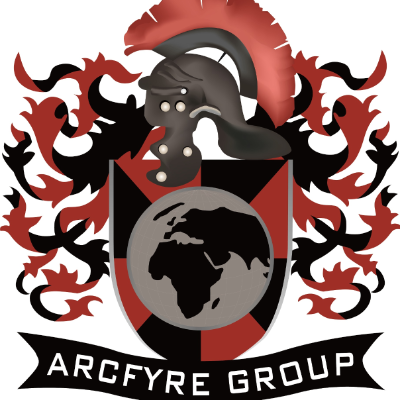Johannesburg, 20 February 2018 – CEOs around the world have cited terrorism as the second biggest threat to their businesses. Global firm PwC released its Annual Global CEO Report recently that highlighted a marked shift in what keeps global CEOs awake at night. Broader societal threats have trumped immediate business challenges such as availability of key skills, populism and increasing tax burden as sources for anxiety.
Leading protective and risk consulting firm Arcfyre Group CEO Jared Higgins said: “There is no doubt, from our experience, that when we are contacted by CEOs from around the world there are very few region’s that are exempt from terrorism, geopolitical uncertainty and unrest. Risk, crisis planning, and management are no longer just a requirement, but now a necessity for all companies, whether they are multinational or region-specific.”

PwC Global Chairman Bob Moritz made the observation after his firm’s broad report, across global regions, that existential threats have leapfrogged more immediate and internal business issues as the number one focus of captains of industry. “CEOs appear increasingly anxious about broader societal threats rather than direct business ones,” he said.
In total, the report has been compiled from 1293 global interviews with CEOs in 85 countries during the fourth quarter of 2017. Over-regulation remains the top threat in the world according to the business leaders, but the most starting movers are terrorism and geopolitical uncertainty.
In one-year terrorism catapulted from outside the main focus to the second spot in the top 10 threats as cited by CEOs. Each global region obviously reflects a slightly different bag of threats as the most anxiety-inducing, but there is undoubtedly a common thread. In an era of North Korea firing nuclear weapons, vans ploughing through crowds of people and shooters targeting Western targets, a general sense of unease as inexorably crept to the top of mind.
From a practical perspective, multinationals have a far broader risk spread by mere virtue of having teams spread across the globe. In addition to the geography, multinational employees are seen as high-value targets by terrorists seeking to extort money to fund their nefarious activities. “In some countries ‘duty of care’ legislation holds the business liable for the safety of their traveling employees. However, in addition to this, companies need to create and implement necessary measures to make responsible, informed travel and risk management decisions,” said Higgins.
The fact that social unrest and terrorism threats do not come in a one-size-fits-all model no doubt adds to CEO’s lying awake in existential sweats. A Middle Eastern or African country may come with kidnap and suicide bombing threats whereas North America and Europe face crowd immersive threats such as ramming vehicles and other ‘makeshift’ or difficult-to-spot activities. Higgins said that the world has come to the realization that all countries come with their own unique safety and security concerns related to myriad factors from internal politics to global tension.
“The human capital losses, the reputational damage when a situation could have been averted, the bottom line and so much more is at stake. However, lives are the most valuable commodity out there, and that’s why business leaders stay awake at night. In many instances much of the anxiety can be alleviated if the organisation follows a proper risk mitigation strategy and takes responsibility for the due diligence that should be carried out.
“Ticking all the boxes before sending teams into dangerous or unfamiliar regions is non-negotiable. Having a clearly defined risk and crisis management plan for both domestic regions and international branches is no longer a luxury but a fundamental requirement,” said Higgins.
Naturally, adding travel into the mix raises the risk level’s considerably. The reality is that the world is a global village and the growth and sustainability of businesses depend on this inter- and intra-border trade. Speaking about general existential threats is a good strategy to bring the organisation up to scratch regarding the new world order but drilling down into the detail is the vital next step.
Higgins gave an indication of the kind of detail the Arcfyre Group works on with clients who are sending teams into unfamiliar or risky regions. “We carefully identify the routes that we use along with proximity to. A lot of our focus is on planning and we have extraction plans in place. We identify safe zones and hazardous zones to avoid and we have staff that we can monitor and track all movements. In terms of extraction, it is about understanding that from point A to point B, what options do you have? And what is in place before you actually require them.
“What I am saying is that all precautionary measures should be taken seriously, whether you
have been in the same office for a decade or on 20 trips around the world, without incident. I think the PwC report reflects that CEOs around the world have now all reached this space in terms of how seriously they take physical threats to their staff, organisations, business and the economies where they operate. Ultimately companies are global citizens and their longevity is under threat in this era of heightened global tension.”
About the Arcfyre Group:
The Arcfyre Group is a leading, globally operational Protective and Risk Consulting firm. For over a decade, Arcfyre has provided professional, turnkey services to high net-worth individuals, philanthropic and Fortune 50 companies. The Arcfyre Group has successfully provided Protective, Secure Drive and risk consulting services to clientele in over forty countries on four continents.
